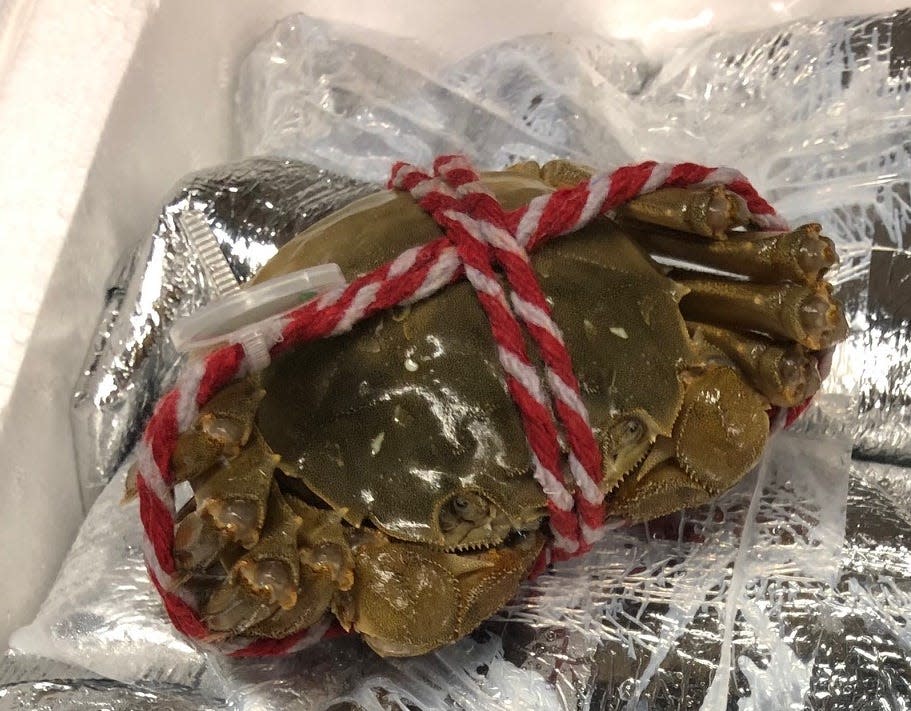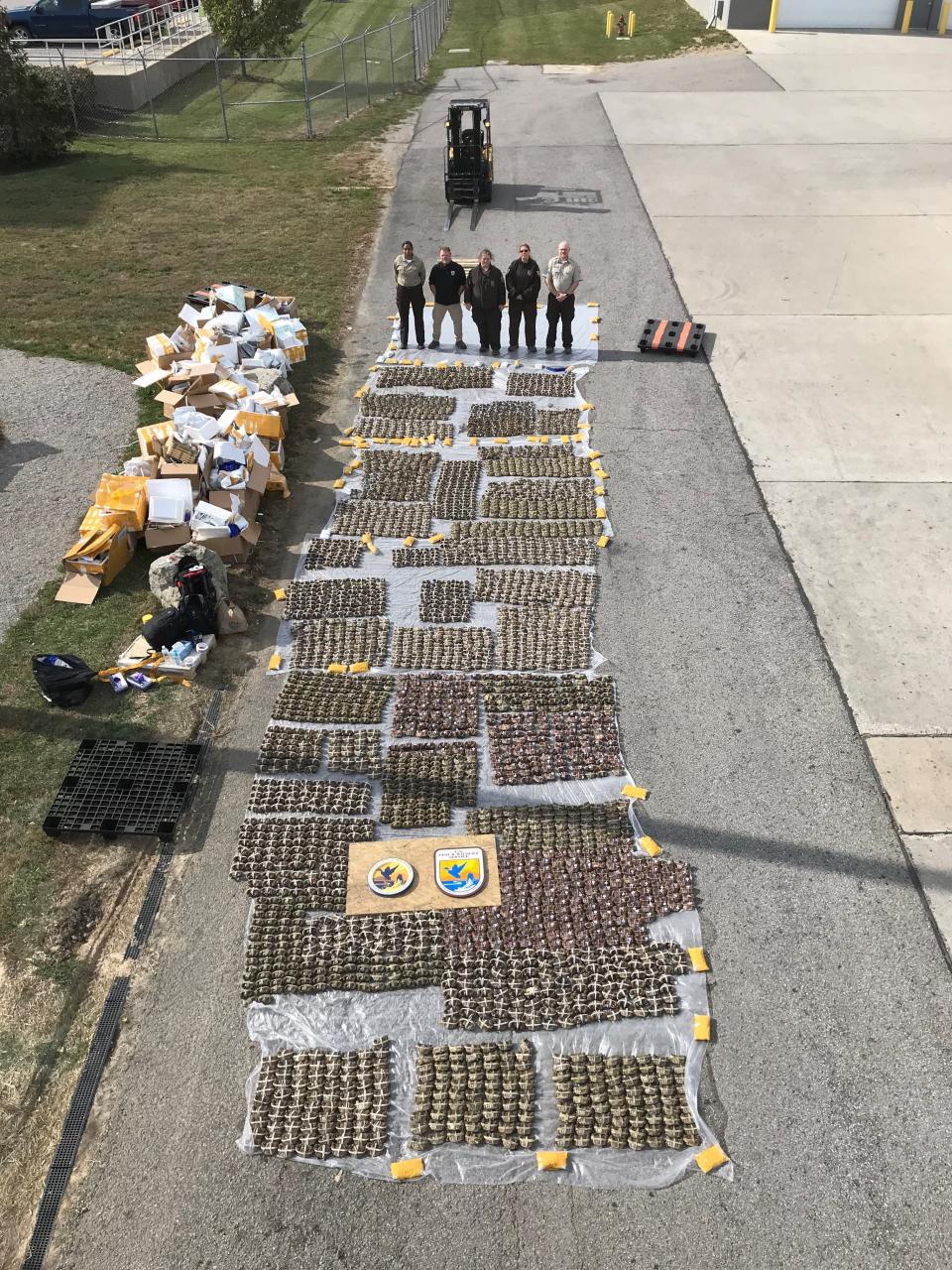Smugglers tried to bring 3,700 invasive crabs through the Port of Cincinnati

CINCINNATI – U.S. Customs and Border Protection says its agriculture specialists at the Port of Cincinnati have stopped 51 shipments of invasive mitten crabs from being smuggled into the country over the past four months.
The shipments containing 3,700 of the live crabs weighed about 3,400 pounds, originated in China and Hong Kong and were destined for businesses and homes in multiple states – mostly New York, a CBP press release said.
Nationwide, CBP agriculture specialists and others have refused entry to more than 15,000 mitten crabs since September.
The Port of Cincinnati stopped the largest number of the palmed-size crustaceans with furry claws, CBP said.
Los Angeles ports of entry ranked second.
Watch: Belgian man arrested for trying to smuggle 20 live birds out of Peru airport
Watch: Adorable animals saved from smugglers in Indonesia
All the Port of Cincinnati mitten crab shipments were labeled as tools and clothing, CBP said.

CBP referred them to U.S. Fish and Wildlife Service inspectors onsite, and the violations are under review. It is illegal to import mitten crabs into the United States without a permit, CBP said.
Mitten crabs are a delicacy in Asia and sell for about $50 each in the United States, CBP said.
But mitten crabs can harm the ecosystem and are included in the Invasive Species Specialist Group’s list of “100 of the World’s Worst Invasive Alien Species.”
The Smithsonian Environmental Research Center says mitten crabs compete with native crustaceans for food and space, interfere with commercial fishing by eating bait and damaging traps and undermine banks along waterways, levees and dikes with their burrowing.
CBP says mitten crabs have been found in California waterways, the Hudson River and the Chesapeake and Delaware bays.
“As a unified border agency, CBP is committed to a fully integrated approach toward international security,” Cincinnati CBP supervisory agriculture specialist Barbara Hassan said.
“In this case, we worked closely with (U.S. Fish and Wildlife) to stop a serious threat to our economy and ecology.”
This article originally appeared on Cincinnati Enquirer: Customs officials at Port of Cincinnati stop mitten crab shipments

